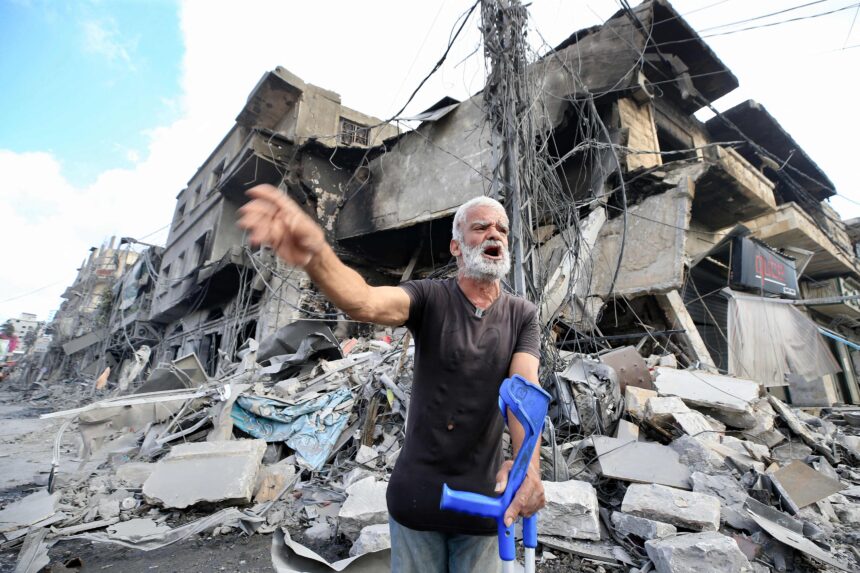BEIRUT – Lebanese data scientist and volunteer rescue worker Bachir Nakhal started a crowdfunding effort to buy new ambulances for south Lebanon months ago, fearing Israel’s war in Gaza could spread to his country.
But weeks into Israel’s war with Hezbollah, his worst fears came true when an ambulance he had helped purchase was bombed.
“We were trying to get the number of ambulances up to the bare minimum level,” he told
AFP.
“We weren’t expecting the ambulances… to get directly targeted or bombed,” said Nakhal, who says the vehicle he had
raised money for was destroyed in an Israeli strike just four days after the volunteers had received
it.
The 9 October strike, which took place in the southern village of Derdghaiya, killed five rescue workers, including the head of the local team and his son, according to the civil defence.
The incident was among what the United Nations says is a growing number of attacks on healthcare in Lebanon, with paramedics, first responders and ambulances increasingly in the firing line.
“More attacks continue to be reported, where ambulances and relief centres are targeted or hit in Lebanon,” UN humanitarian agency OCHA said after the Derdghaiya strike.
The Israeli army has accused Hezbollah of using ambulances to transport weapons and fighters, though it has yet to produce any evidence.
“Necessary measures will be taken against any vehicle transporting gunmen, regardless of its type,” Israeli army spokesman Avichay Adraee wrote in Arabic on social media platform X.
Nakhal said a second crowdfunded ambulance, dispatched to the southern city
of Nabatiyeh on Monday, was barely on the road for a day when it had a close call with heavy
strikes.
Israel had earlier in the war issued an evacuation warning for Nabatiyeh, where Hezbollah and its ally Amal hold sway.
On Wednesday, 16 people, including a civil defence worker, were killed in a strike on Nabatiyeh, according to Lebanon’s health ministry.
The ambulance was
spared.
The vehicles are sorely needed, with Lebanon’s healthcare system overwhelmed by the escalation of cross-border fire between Hezbollah and Israel into an all-out war last month.
At least 1,373 people have been killed in Lebanon since 23 September, according to an AFP tally of Lebanese health ministry figures, though the real toll is likely higher.
According to Lebanon’s health minister Firass Abiad, more than 150 paramedics and medical workers have been killed since cross-border exchanges started last year.
More than 130 ambulances have been damaged over the same period, he said in a press conference on Tuesday.
The Lebanese Red Cross on Wednesday said two paramedics were wounded in a strike which hit the south Lebanon village of Jwaya, while a rescue mission coordinated with UN peacekeepers was underway.
Paramedics were also lightly wounded and ambulances destroyed by an Israeli strike in the country’s south on Sunday.
As Israel expands its operations, Nakhal too is beefing up his efforts, as he works on securing a third ambulance for Lebanon’s eastern Bekaa region.
“It’s my way of dealing with the war, and doing my part in this. It’s one way of giving back to my community,” he said.
He is working with Omar Abboud, a 30-year-old Lebanese data scientist living in New York, who raised US$15,000 for the first ambulance within a day through social media.
They hope to dispatch the latest ambulance to civil defence volunteers in Bekaa before the end of the month.
The ambulance attacks are an “example of the undeniable truth that Israel targets hospitals and ambulances with impunity”, Abboud told AFP.
“Whether the ambulances are on the road for five days or five years is not relevant to me. When you’re dealing with destruction and suffering at this scale, one life saved is enough.”
– Nampa/AFP



